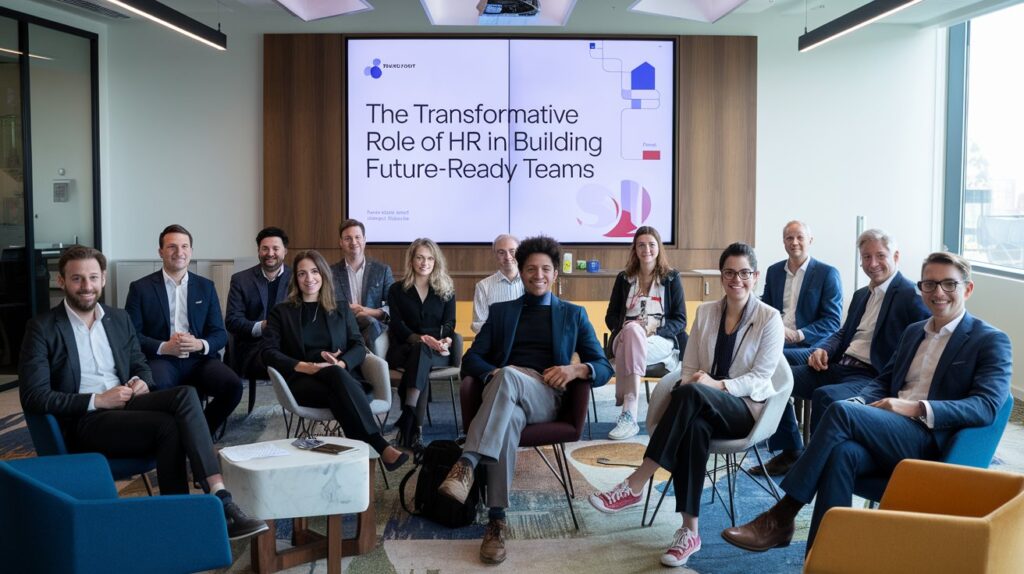In the modern business world, the Role of HR Services has evolved significantly. HR is no longer just an administrative function but a strategic partner in helping businesses build future-ready teams. As organizations face a rapidly changing environment, the need for adaptable, skilled, and motivated teams has never been more crucial. HR’s role in managing talent acquisition, employee development, and fostering organizational culture is pivotal in ensuring businesses are well-equipped for future success.
Talent Acquisition – Attracting the Right Talent for Tomorrow
Talent acquisition has always been a central part of the HR function, but in 2024, it plays an even more vital role in shaping the future of businesses. Today, HR departments are tasked with more than just filling vacancies. They are responsible for attracting individuals who not only have the necessary skills but also align with the company’s culture and vision for the future.
Effective talent acquisition strategies go beyond traditional methods. HR departments now utilize advanced technology, including AI and data analytics, to identify the best candidates, predict future hiring needs, and streamline the recruitment process. Additionally, organizations are placing more emphasis on diversity and inclusion, recognizing that diverse teams bring different perspectives, foster creativity, and drive innovation.
The Importance of Staff Training and Development for Team Growth
Building future-ready teams is not just about bringing in the right people. Once employees are onboard, staff training and development play a crucial role in helping them grow and adapt to new challenges. HR’s responsibility extends beyond recruitment to ensuring that employees are continuously developing their skills.
In today’s fast-paced business environment, the need for continuous learning is critical. HR departments implement training programs that focus on both hard skills and soft skills. Soft skills such as communication, problem-solving, and adaptability are becoming increasingly important as companies face complex, fast-moving markets. By fostering an environment where learning is ongoing, HR helps employees stay competitive and prepared for future opportunities.
Leveraging HR Services to Optimize Workforce Management
As the business landscape becomes more complex, companies are increasingly relying on HR services to manage their workforce efficiently. These services go beyond recruitment and training; they also encompass employee engagement, performance management, and HR analytics.
HR services offer businesses the tools and insights needed to manage their teams effectively. For example, using data analytics, HR departments can monitor employee performance, identify areas for improvement, and implement strategies to enhance productivity. By leveraging these tools, HR can ensure that the right people are in the right roles, leading to a more cohesive and high-performing team.
Leadership Development – Building the Leaders of Tomorrow
One of HR’s most important functions is to identify and nurture future leaders within the organization. Leadership development is a strategic initiative that ensures the company has a strong leadership pipeline to drive success in the long term. HR plays a crucial role in identifying potential leaders and providing them with the necessary training and mentorship.
Leadership development programs are designed to equip employees with the skills they need to lead teams, drive innovation, and make strategic decisions. As organizations evolve, HR’s role in leadership development becomes even more important. Future leaders must be adaptable, capable of managing change, and equipped to guide their teams through uncertainty.
The Role of HR Consulting Firms in Shaping Effective HR Strategies
An HR consulting firm can be a valuable partner for businesses looking to build future-ready teams. These firms bring specialized expertise and an outside perspective that can help organizations optimize their HR strategies. Whether it’s refining recruitment processes, developing training programs, or implementing workforce management systems, HR consulting firms offer insights that align with a company’s specific needs.
By partnering with an HR consulting firm, businesses can access the latest HR trends and best practices. Consultants help organizations stay ahead of the curve, ensuring that HR strategies are not only effective but also future-proof.
The role of HR in building future-ready teams is more critical than ever. By focusing on strategic talent acquisition, continuous employee development, and leveraging innovative HR services, businesses can ensure that their teams are well-equipped to thrive in the face of future challenges. HR is no longer just a back-office function; it is a key driver of business success, shaping the workforce of tomorrow and ensuring organizations remain competitive in an ever-changing world.






More Stories
Everyday Events Perfect for In Glocks We Trust Clothing
SEO Company in Pakistan: Achieving Top Rankings and Success in the Digital Age
The Highly Recognized Clothing Brand adwysd